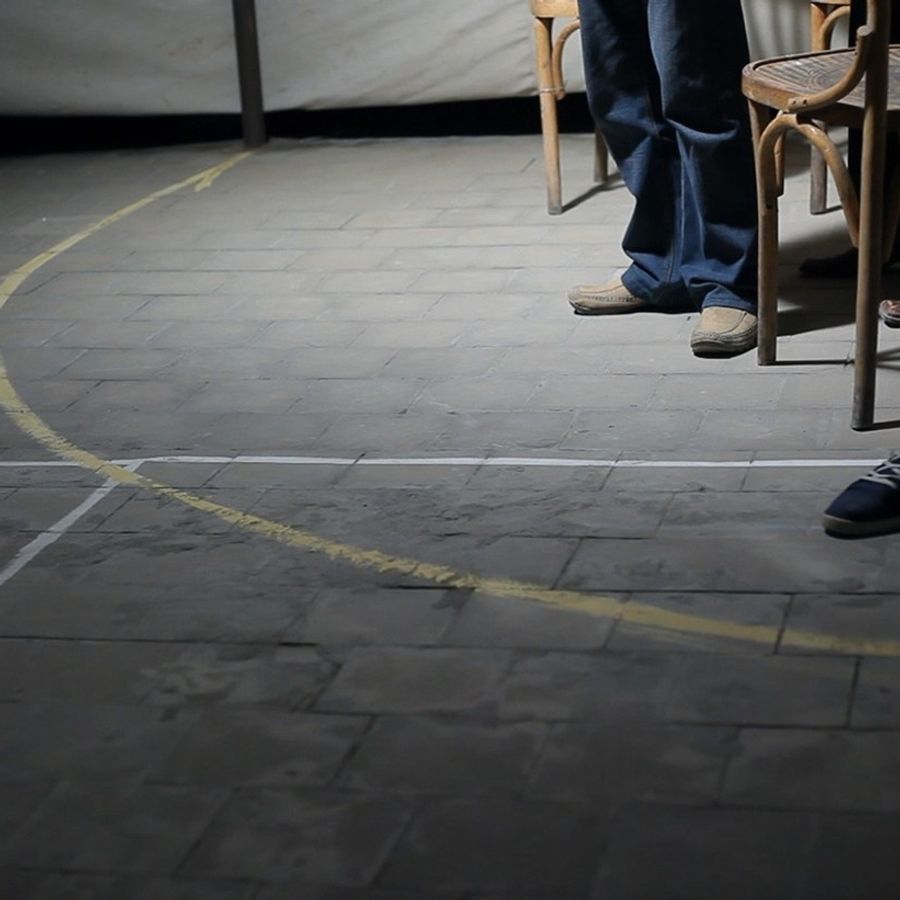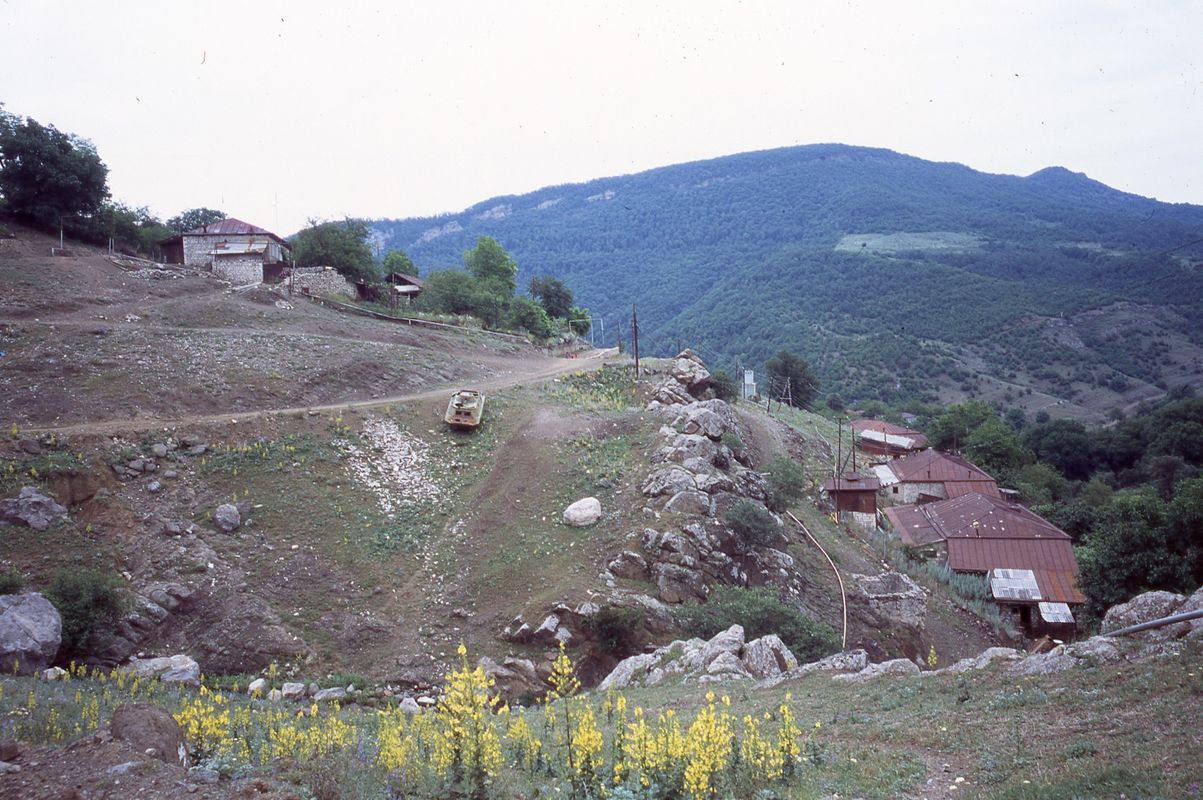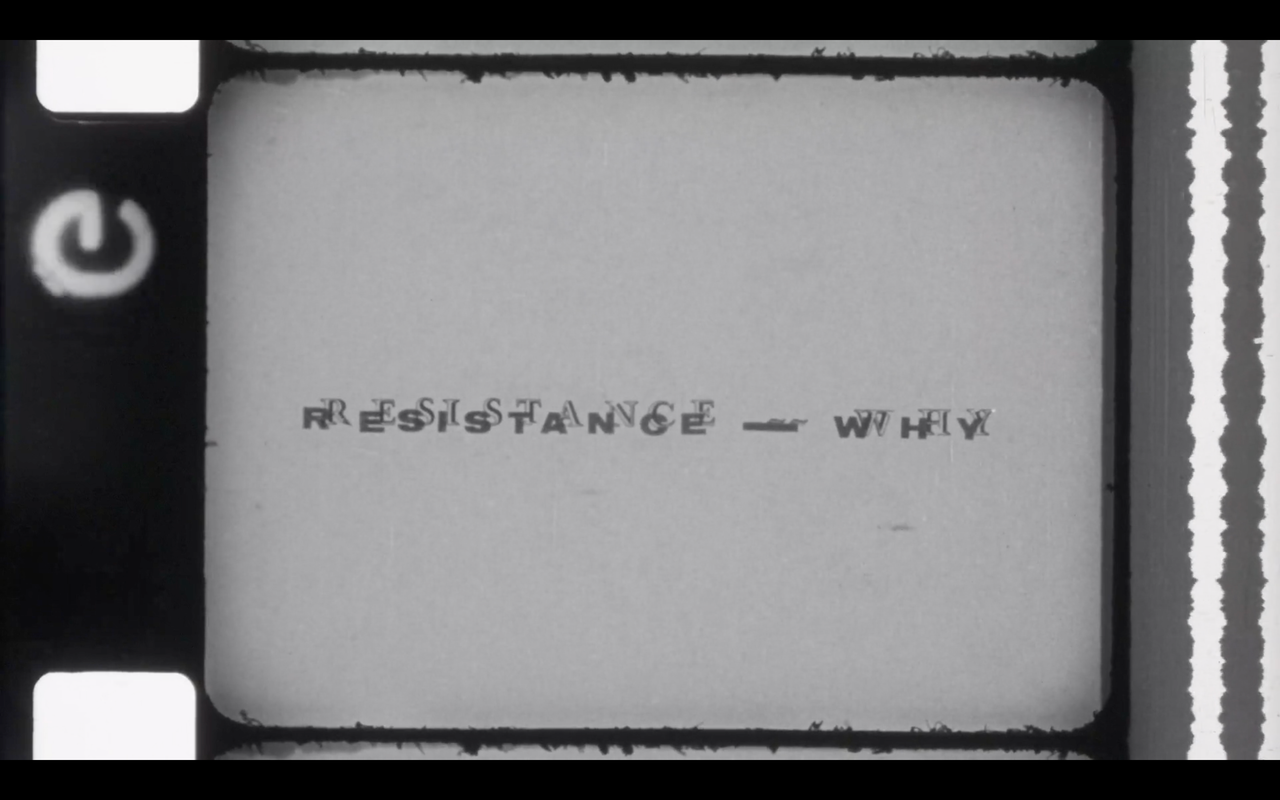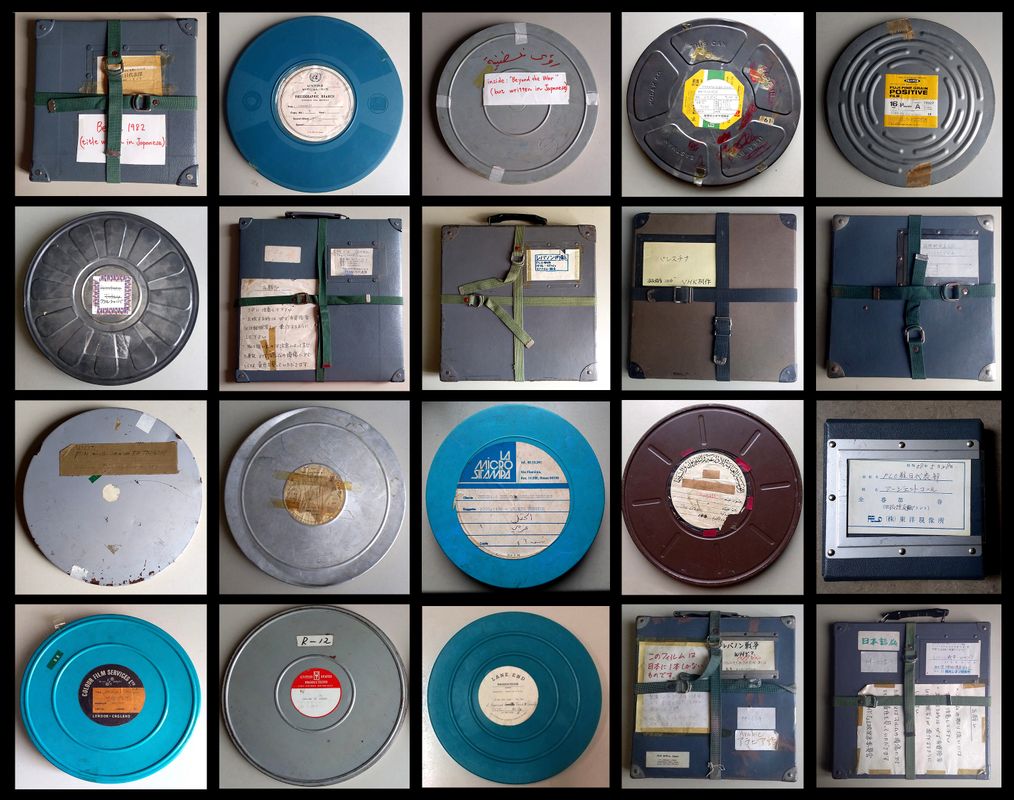
How to be collective?
-
25 Sep14:00 - 23:00BruggeSint-Janshospitaal
line-up
Resistance – Why film
Christian Ghazi
Lebanon, 1971, 54’
13:30
This recently discovered film by the Lebanese avant-guard of political cinema, Christian Ghazi, is newly digitized and cared for by Nadi Lekol Nas, an organization committed to safeguarding, archiving and transmitting cinematographic, musical, and literary productions of the Levant from the 1930s onwards.
In 1970, at the urging of the Lebanese organization Soraya Antonius (Fifth of June Society), directors Christian Ghazi and Noureddine Chatti went to meet and film selected Arab political and public figures, particularly Palestinians living in Lebanon. In the resultant material Ghassan Kanafani, Sadiq Jalal Al- Azm, Nabil Shaath and others offer their perspective on the Palestinian revolution, anchoring it in a history that dates back to the early 20th century. Together, these testimonies describe the multiple labor strikes and popular protests that had taken place in Palestine throughout the different colonial projects there.
Out on the Street film
Jasmina Metwaly, Philip Rizk
Egypte, 2015, 71’
14:30
Out on the Street is a film about a group of workers from one of Egypt’s working class neighborhoods, Helwan. In the film ten working-class men participate in an acting workshop. Through the rehearsals, stories emerge of factory injustice, police brutality, courts that fabricate criminal charges, and countless tales of corruption and exploitation by their capitalist employers.
On a rooftop studio overlooking the heart of Cairo – presented as a space between fact and fiction – the participants move in and out of character as they shape the performance that engages their daily realities. Out in the Street interweaves scenes from the workshop, fictional performances, and mobile phone footage shot by a worker intended as evidence for the courts to stop the destruction of his workplace. This hybrid approach aims to engage a collective imaginary, situating the participants and spectators within a broader social struggle.
Black Bach Artsakh film
Ayreen Anastas, Rene Gabri
Armenië, 2021, 150’
16:30
Black Bach Artsakh is the name of a world. It lives in and as a film. Those who view it not only inhabit it, but also care for it, keep it alive by keeping watch over it. In this way, it is not a film which so much resists the makers of war and those who deny and continue to justify genocide: it is a film which outlives them.
If film is a document, then it bears witness to a place and a time. For example: This film re-members events from a place called Artsakh in the year 2007—a middle point—exactly 13 years after the 1994 cessation of hostilities in the struggle for liberation and self-determination by Nagorno-Karabakh’s Armenian inhabitants, and 13 years before the 2020 invasion by Azerbaijan’s dictator, who enlisted Turkey’s military and several thousand mercenaries from Syria to conquer those same lands as his country’s sovereign domain.
Then film as a testament, which this film claims affinity with, is what unsettles the domain or reign of any sovereign or sovereignty. It inhabits a time, which is neither the linear one of history nor the make-believe one of fiction: but what some refer to as that of the eternal. For this, and rightly so, Johann Sebastian Bach has been assigned as its honorary composer.
Film as collective talk
Leden van Subversive Film en andere gasten, 60’
19:30
How are films made collectively? Not only in the sense of authorship, but in how they are formulated, who participates in the process of making these films, how these films circulate around the world and are distributed and how these films are cared for.
About Subversive Film
Subversive Film, formed in 2011 and based in Ramallah and Brussels, is a cinema research and production collective that aims to cast new light upon historic works related to Palestine and the region, to engender support for film preservation, and to investigate archival practices and effects in these gestures of redistribution. Their long-term and ongoing projects explore this cine-historic field including digitally reissuing previously-overlooked films, curating rare film screening cycles, subtitling rediscovered films, producing publications, and devising other forms of interventions.




